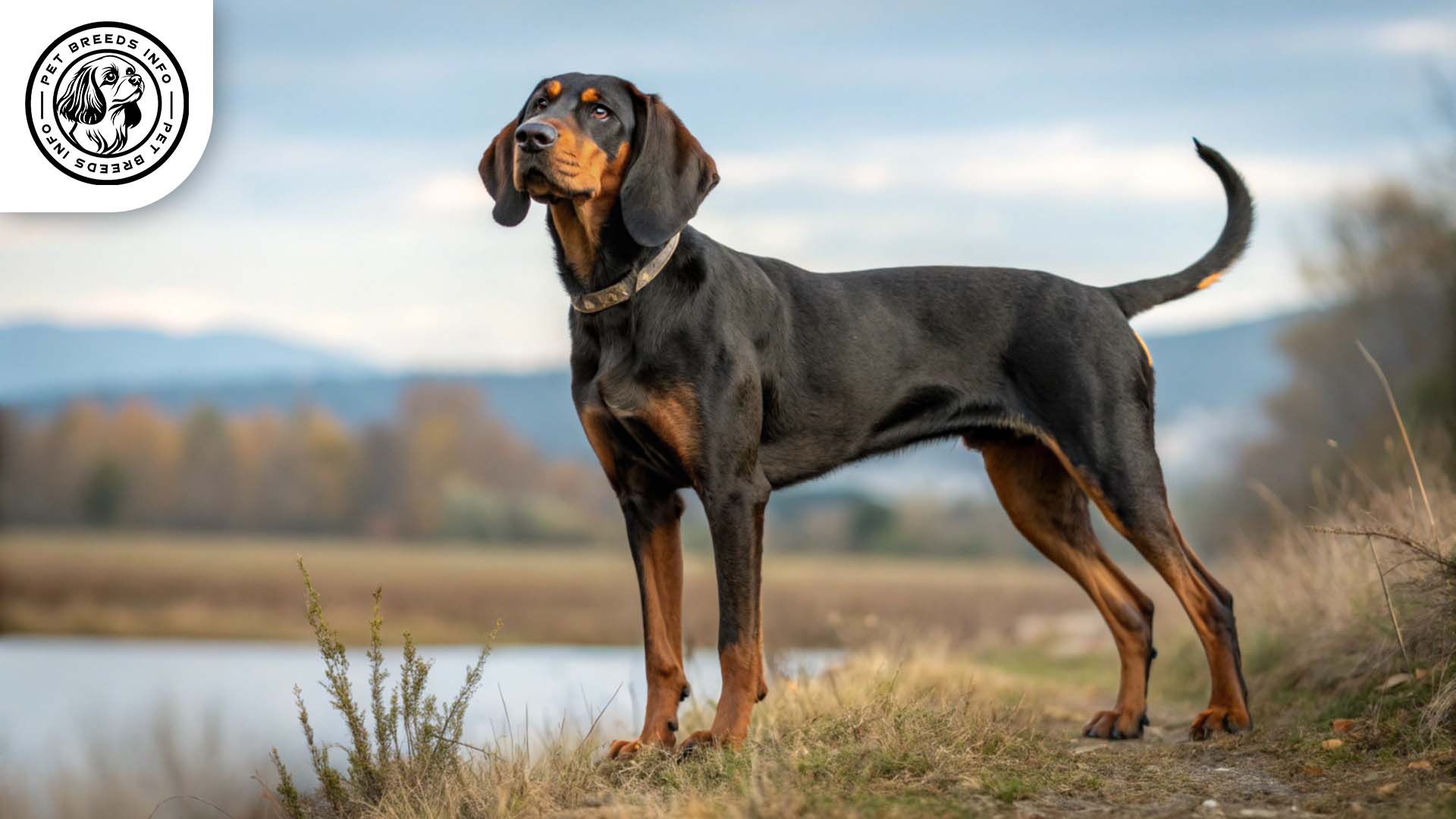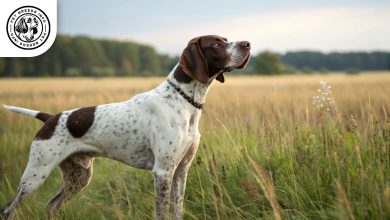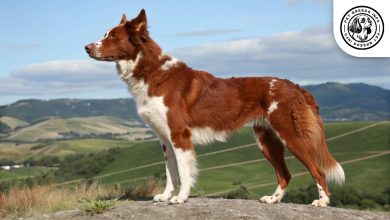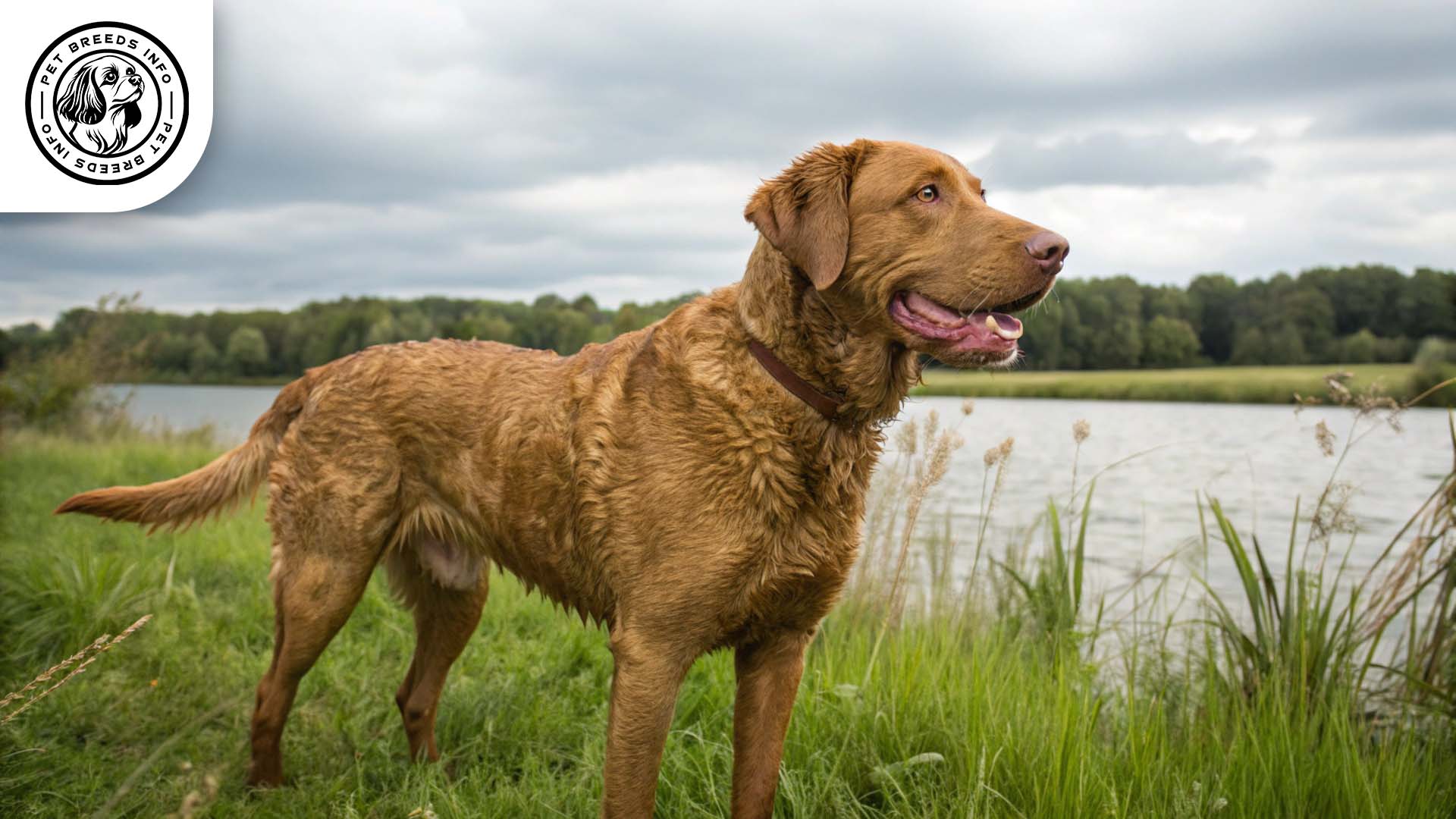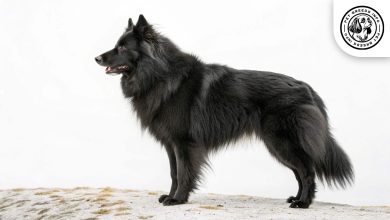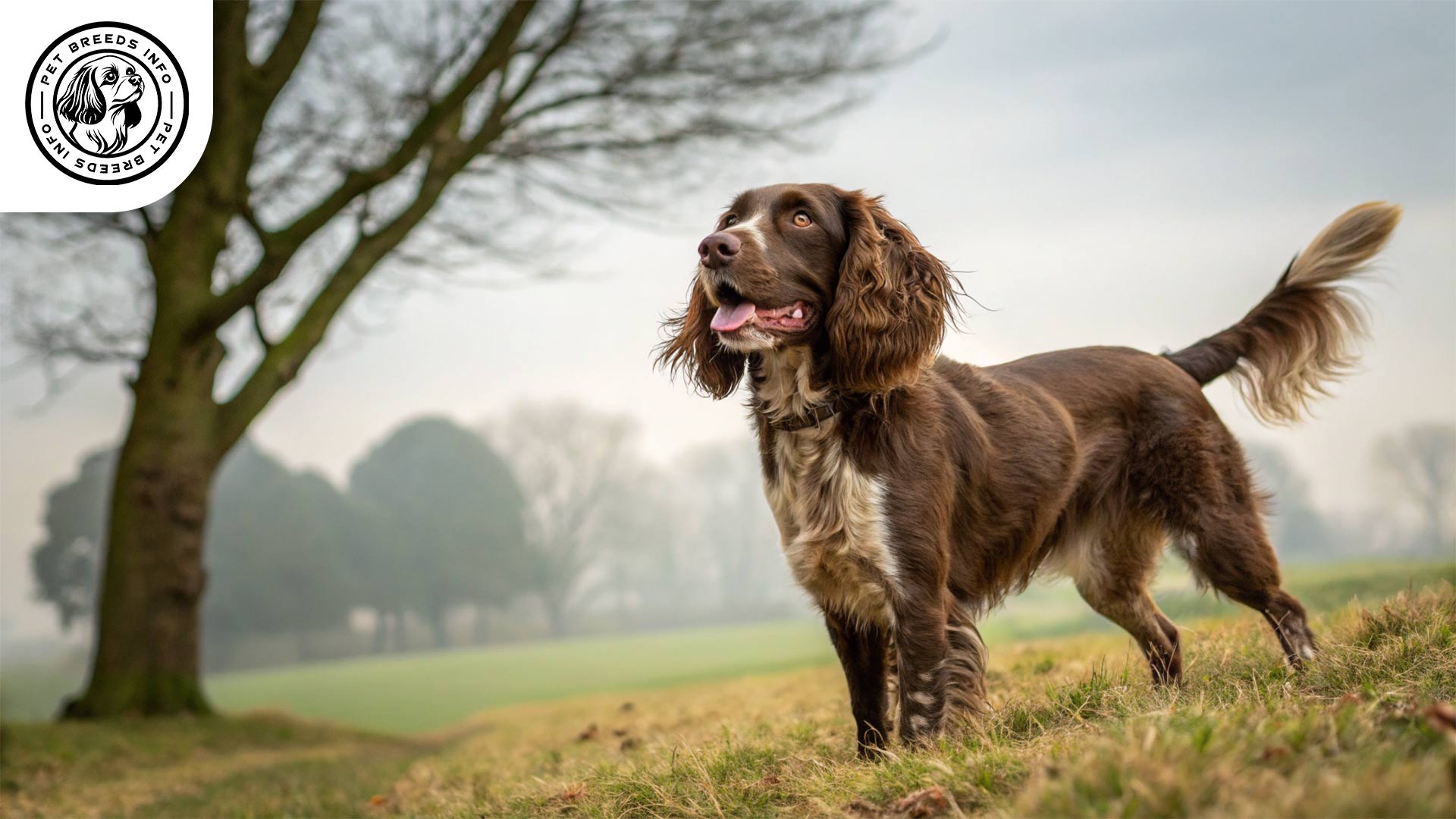Transylvanian Hound Dog Breed: Size, Price & Personality
General Introduction of the Breed
The Transylvanian Hound, also known as Erdélyi Kopó in Hungarian, is a rare and ancient hunting dog originating from Hungary. This breed was historically used by Hungarian nobility for hunting large game in the dense forests of the Carpathian region. Over time, the breed almost went extinct but has been carefully revived by enthusiasts who appreciate its exceptional hunting skills and loyal temperament.
Table of Contents
| Weight | 44-77 lbs (20-35 kg) |
| Lifespan | 10-14 years |
| Diet | High-quality dry/wet food, protein-rich diet |
| Care | Moderate exercise needs, minimal grooming |
| Health | Prone to hip & elbow dysplasia |
| Color | Black with tan markings |
| Nature | Intelligent, energetic, affectionate, independent |
| Price | $600 – $1,500 (breeder); adoption possible but rare |
Physical Characteristics
The Transylvanian Hound is a medium to large breed, with males typically standing between 22-26 inches (56-66 cm) tall and weighing around 55-77 lbs (25-35 kg). Females are slightly smaller, measuring between 20-24 inches (50-61 cm) in height and weighing 44-66 lbs (20-30 kg).
This breed has a short, dense coat that is primarily black with tan markings above the eyes, on the muzzle, chest, and legs. Its eyes are almond-shaped and dark brown, reflecting an intelligent and alert expression. The ears are medium-sized, set high, and hang close to the head. The tail is long and slightly curved, carried low when relaxed and raised when in motion. One of its distinctive features is its strong, muscular build, which contributes to its endurance and stamina.
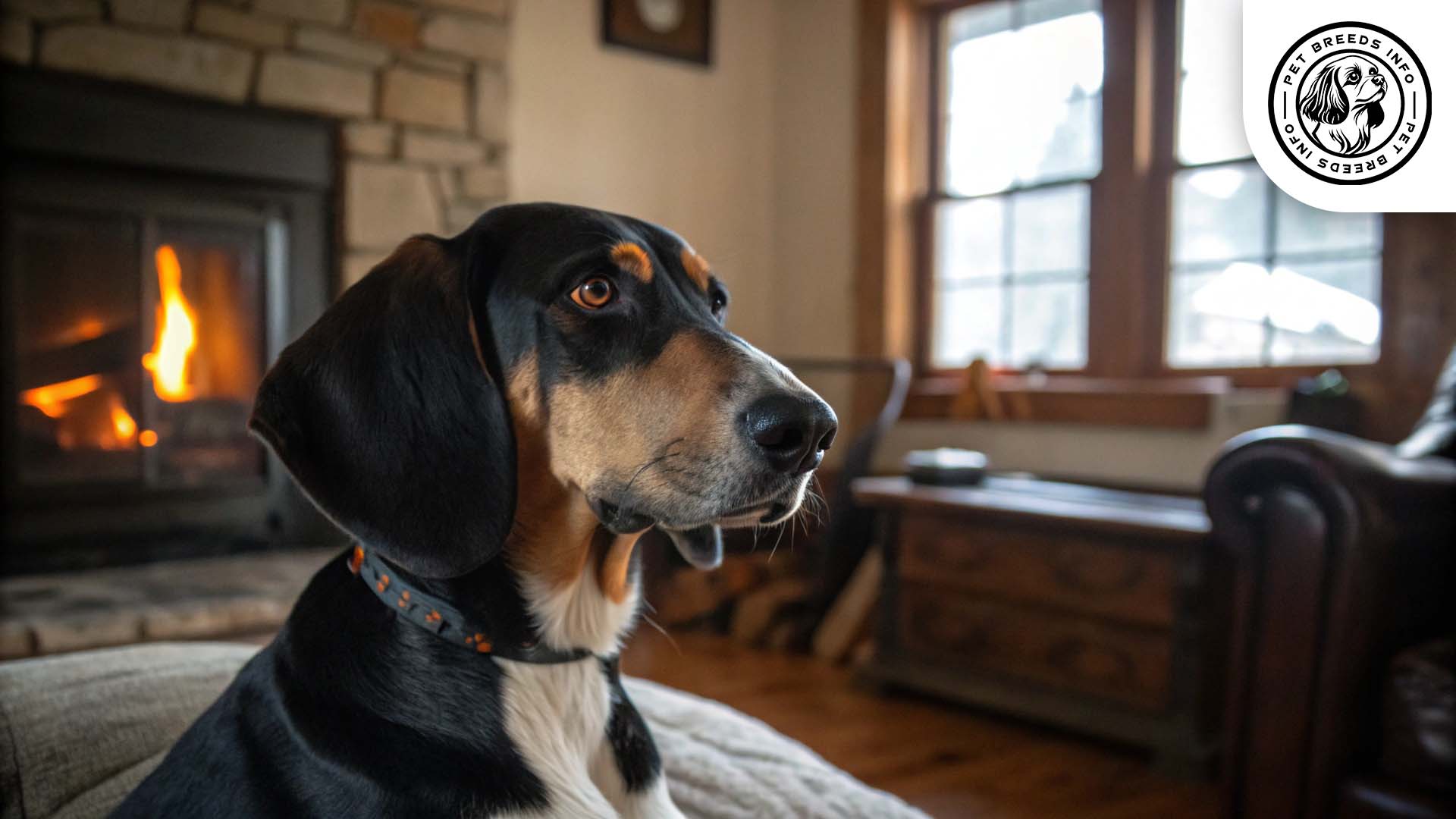
Personality and Temperament
The Transylvanian Hound is an intelligent breed that learns quickly with consistent training. It has a high energy level and requires ample physical activity to stay happy and healthy. This breed forms strong bonds with its owners and is affectionate while maintaining an independent nature.
It is typically friendly with people but can be reserved around strangers due to its natural guarding instincts. With proper socialization, it gets along well with children and other pets. Given its hunting heritage, it has a strong prey drive and may chase smaller animals if not properly trained. It is also highly sensitive to changes in its environment and thrives in a stable, structured household.
Read More: Slovakian Rough-Haired Pointer
Care and Maintenance Requirements
As an energetic breed, the Transylvanian Hound requires daily exercise, such as long walks, jogging, or playtime in a secure area. It is best suited for homes with large yards or access to open spaces rather than small apartments.
The short coat is low-maintenance and only requires weekly brushing to remove loose fur. Shedding is moderate, and grooming needs are minimal. Bathing is only necessary occasionally, depending on the dog’s level of activity and exposure to dirt. Regular nail trimming, ear cleaning, and dental care are essential for overall health.
This breed adapts well to various climates but does best in moderate temperatures, as extreme heat or cold can be challenging for it.
Diet and Nutrition
The Transylvanian Hound thrives on high-quality dry or wet dog food, supplemented with natural ingredients like lean meats, vegetables, and essential fats. A balanced diet is crucial for maintaining its energy levels.
This breed does not have major food allergies but should avoid excessive treats or high-carb foods that could lead to obesity. Harmful foods such as chocolate, onions, grapes, and excessively fatty meals should be strictly avoided.
Adult dogs should be fed twice daily with portion sizes adjusted based on their age, weight, and activity level.
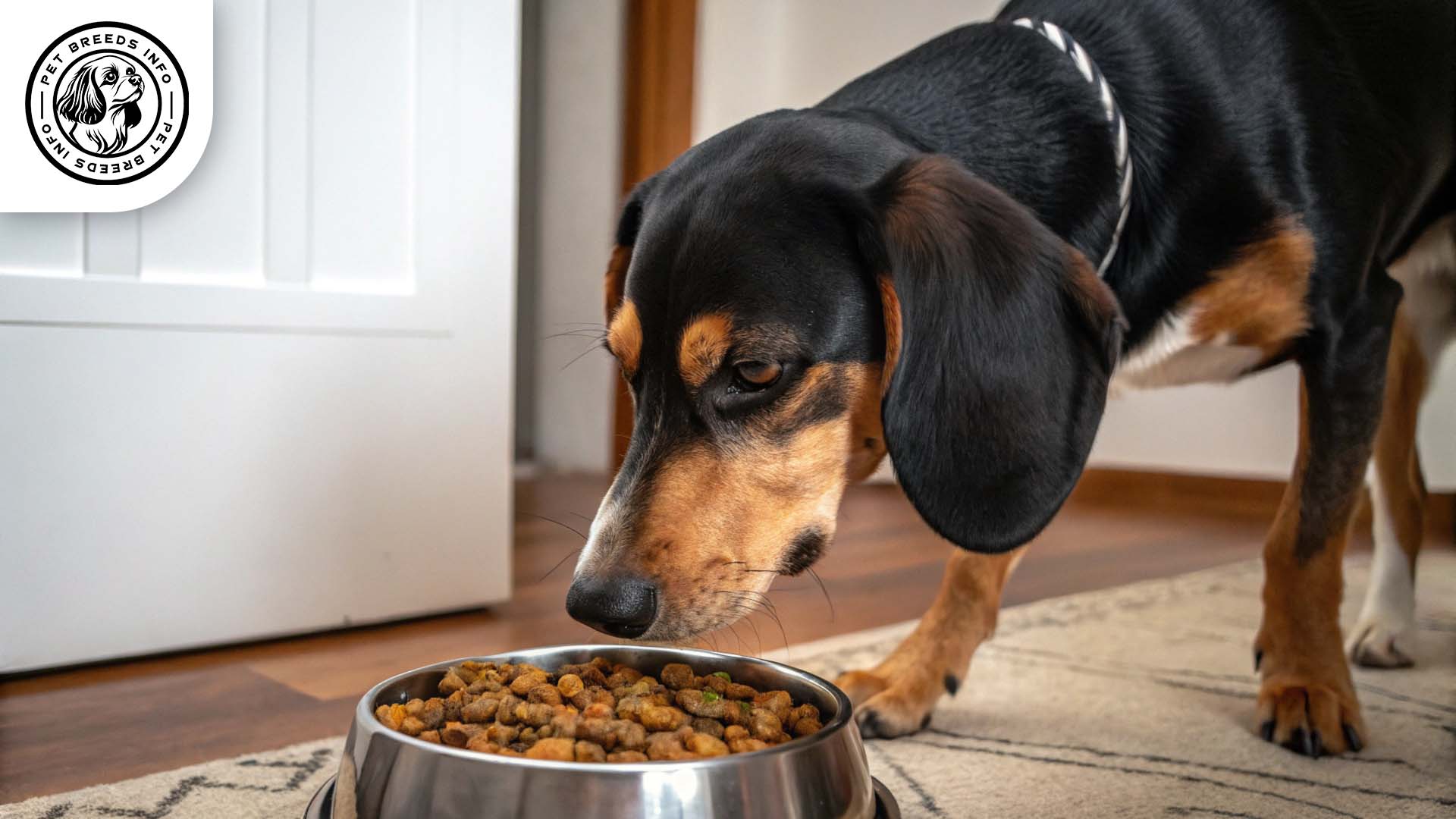
Health and Common Medical Issues
The Transylvanian Hound is generally a healthy breed with an average lifespan of 10-14 years. However, like many medium to large breeds, it may be prone to hip dysplasia and elbow dysplasia. Regular veterinary check-ups and maintaining a healthy weight can help prevent these issues.
Routine vaccinations, flea and tick prevention, and annual health screenings are recommended to keep the dog in top condition. Owners should also monitor the dog’s ears and paws, especially after outdoor activities, to prevent infections or injuries.
Read More: Swedish Vallhund Dog
Training and Behavior Management
This breed is intelligent and eager to learn, making it relatively easy to train. However, early obedience training and socialization are essential to develop well-behaved adult dogs.
Positive reinforcement methods, including treats and praise, work best when training a Transylvanian Hound. Due to its independent nature, consistent and patient training is necessary. Exposure to different environments, people, and animals from a young age will help shape a well-adjusted companion.
Interaction with Other Animals and Humans
The Transylvanian Hound is a loyal and affectionate family dog. It gets along well with children if raised with them and taught proper boundaries. It enjoys companionship but retains some independence.
While generally good with other dogs, its strong prey drive means supervision is necessary around small pets such as rabbits or guinea pigs. It is best suited for families or active individuals who can provide the time and space needed for its exercise and mental stimulation.
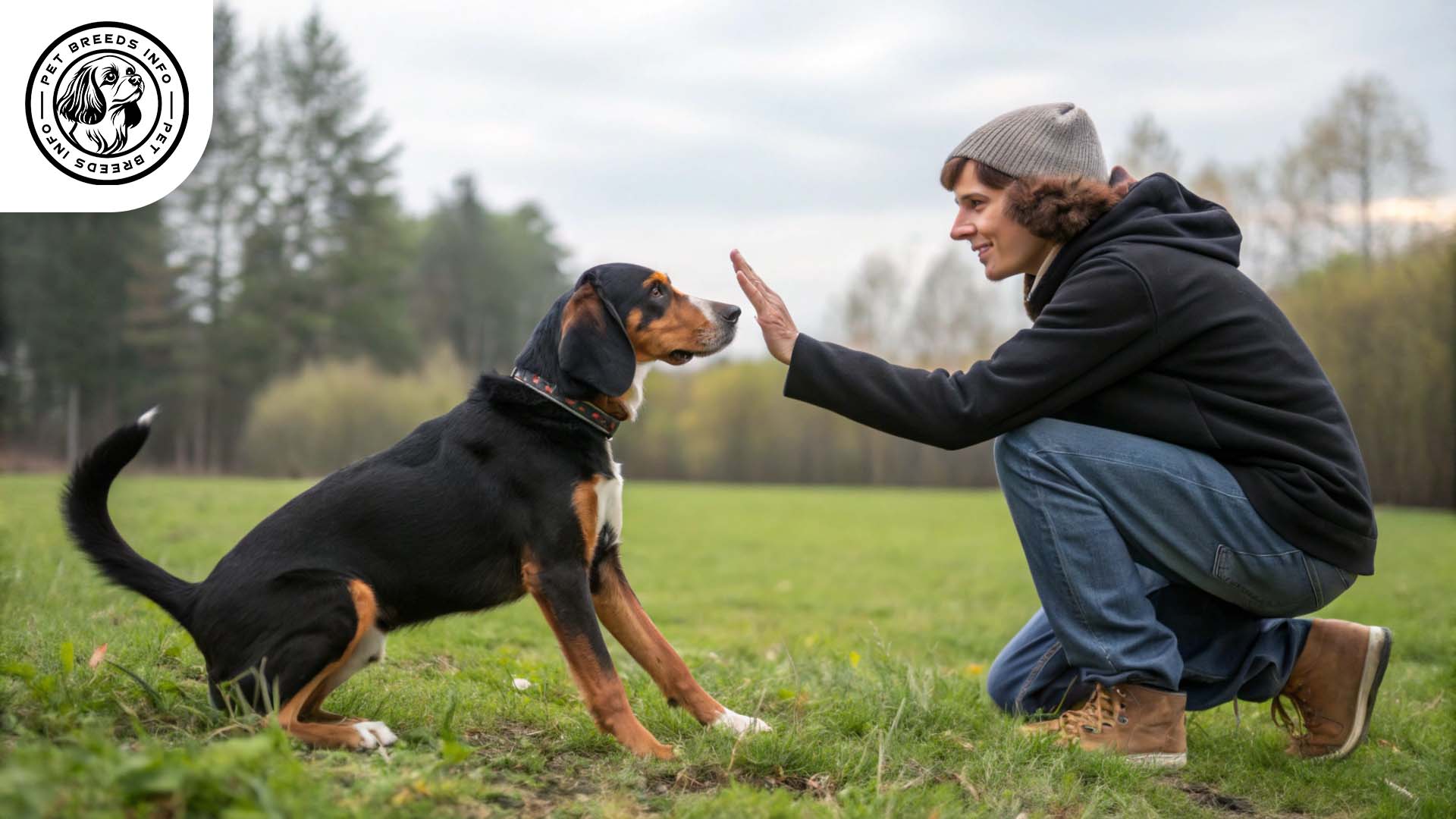
Price and Availability
The cost of a Transylvanian Hound puppy typically ranges between $600 and $1,500, depending on the breeder’s reputation, bloodline, and location. Given the breed’s rarity, finding a reputable breeder may require research and patience.
Potential owners should always seek breeders who provide health screenings and proper socialization for their puppies. Adoption is also an option through breed-specific rescues or organizations dedicated to preserving this breed.
Read More: Thai Ridgeback Dog
Conclusion and Final Thoughts
The Transylvanian Hound is an intelligent, energetic, and affectionate breed best suited for active owners who can meet its exercise needs. While it excels as a hunting companion, it can also adapt to family life with proper training and socialization.
Potential owners should consider its need for space and activity before committing to this breed. With the right care and environment, the Transylvanian Hound is a loyal and devoted companion that thrives in an active household.
FAQ
Is the Transylvanian Hound good with children?
Yes! With proper socialization, they are affectionate and playful family dogs.
How much exercise does a Transylvanian Hound need?
They require daily long walks, runs, or active play sessions.
Are they easy to train?
Yes, but they need consistent training and early socialization due to their independent nature.
Do they get along with other pets?
They usually do well with dogs but may chase smaller pets due to their hunting instincts.
Can they live in apartments?
Not ideal—best suited for homes with large yards or access to open spaces.
